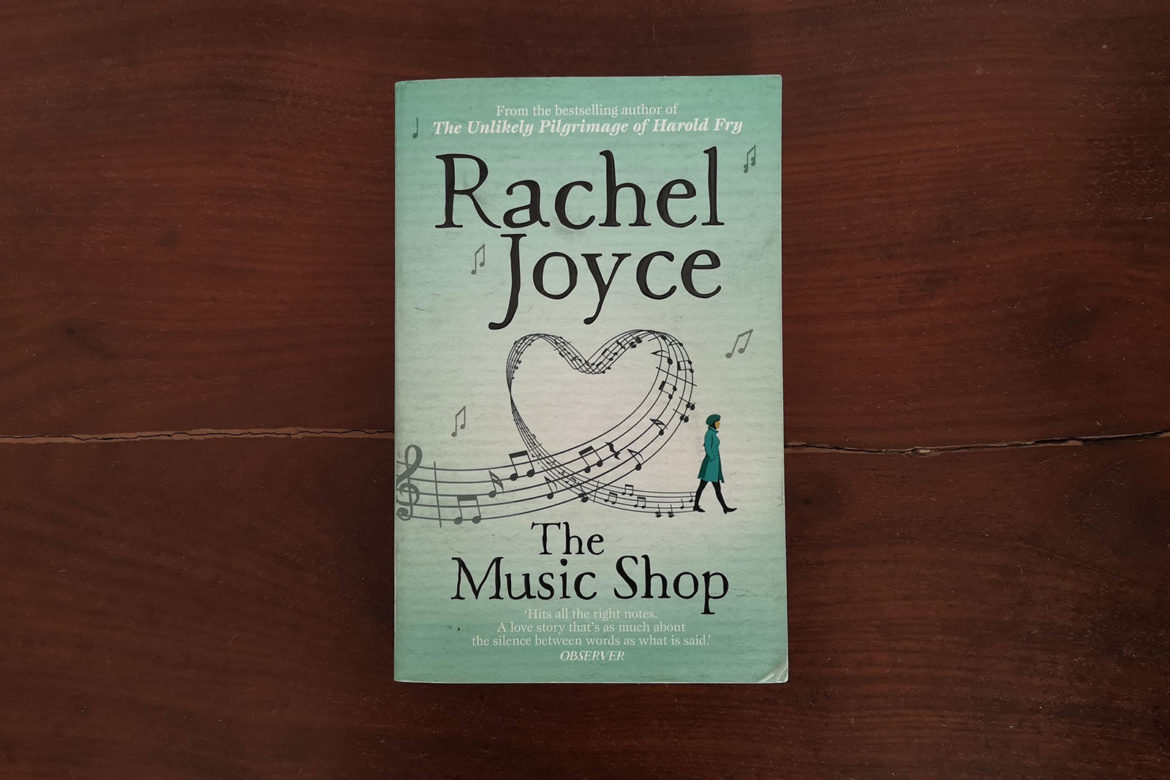To save the UK’s high streets, perhaps everyone should be made to read this book [spoiler alert: this post discusses The Music Shop by Rachel Joyce].
When my mother suggested I read The Music Shop because she thought I’d love it, I remained unconvinced. I tried to explain that just because a book was related to music, didn’t mean it would automatically go down well with me. If I’m honest, my first real objection to the book was that it was labelled very prominently, on the front cover, as a love story. I’m not usually a fan of overt romance; I steer clear of romantic comedies and anything sappy, as a rule. So, it was a risk for me to suggest this as a book for my book group; I wasn’t even sure I’d like it, let alone anyone else!
It turns out that my mum knows me as well as she thinks she does because I quickly became engrossed in The Music Shop. It’s one of those books that you can fly through, being easy to absorb, with strong characterisation and moving at a decent pace. It is also a heartwarming love story and (to my surprise) I loved it.
The Music Shop begins in 1988 and is set in the dilapidated Unity Street, which is under threat from local developers who want to buy it up for housing. The shopkeepers are hanging on by their fingernails while the masonry falls around them – both literally and figuratively. I pictured a quiet shopping street in Glasgow, where I live, but you will have your local high street to relate this to.
There is a diamond in the rough on this street and that’s Frank in his record shop. Frank has the uncanny ability to help his customers by listening to their woes and providing the right music when they need it most. He point-blank refuses to sell the shiny new CDs that the distributors are trying to push, insisting that he will only ever sell vinyl. He’s content with his life until a mysterious German woman, called Ilse Brauchmann, faints outside his shop and turns his small world upside down.
What I most enjoyed about this book was how Joyce shifted the characters. They go from inactive participants in their lives to dynamic people determined to make changes, to transform not only their own lives but those connected to them.
Frank is terrified of change. When, on their second meeting, Ilse tells him that she won’t be returning to his shop because she is getting married Frank is relieved: “It had been a close shave but he was unscathed. He had his shop, his customers; yes, life was exactly as he had always wanted.” He is then forced to act when the shopkeepers realise that Ilse has left her handbag. We all know that this is just the beginning; Frank is now on a journey that will see him build an attachment to Ilse, despite himself.
I found Frank to be an infuriating character at points in the story. He had an unusual childhood, being brought up by a bohemian, emotionally distant mother when all he wanted was: “To have strings, like everyone else”. However, when he feels the strings between him and Ilse forming, he runs a mile. Ilse, on the other hand, seems to have accepted the circumstances that have befallen her, meaning that she can no longer have a life filled with music like she always wanted. She is more of an active character, fighting for what and who she wants until the very end.
Joyce’s strengths are her strong characterisation and her knowledge of music. Both of these elements weave together to draw the reader in and make us reflect on our connections to music. She also uses silence throughout. It’s a juxtaposition for the music Frank hears in people. It emphasises the lack of activity around Unity Street. It creates misunderstandings, and expertly builds tension in the same way that composers use it.
The ending is a predictable one, as this novel is a love story. However, the journey to the ending takes a few surprising turns. My favourite of these twists was finding Maud running a successful flower shop in 2009. I’m not going to lie, I wanted this ending. I needed Ilse to finally bring Frank to his senses. I also hoped she would conquer her fear of playing music. I wished Maud, Kit and Father Anthony would continue their friendship. I welcomed the ‘they lived happily ever after’ of the ‘Hidden Track’ chapter. I guess I’m an old romantic after all. As Ilse says: “No man is an island”.

